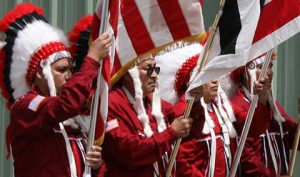
Professor Andrew Cowell and doctoral student Irina Wagner of University of Colorado, Boulder have launched a new website in hopes of keeping the Arapaho language alive. The website was created in conjunction with the Arapaho Language Project by students and faculty in the Department of Linguistics alongside Cowell, and aims to serve as a resource hub for Arapaho. It contains language lessons, a pronunciation guide, bilingual curriculum materials, stories, and many other resources to learn about and speak Arapaho. The site also contains verbal pronunciations in the learning sections where viewers can listen to correct pronunciation of phrases as they are learning.
Cowell and Wagner have recorded oral histories of Arapaho elders on reservations in Wyoming and Oklahoma. The recordings are a collection of trickster stories, to ghost stories, stories about animals, instructional stories, historical narratives, and a special section of stories from Oklahoma. There are also recordings of gospel songs, political songs, war songs, emotional songs, children’s songs, flag songs, and special occasion songs that viewers can listen to on the site.
The Arapaho Language Project began in 2003 with a grant from the Colorado Endowment for the Humanities.
The Arapaho are a tribe of Native Americans historically located in Colorado and Wyoming. Many historical and natural sites in Colorado come from Arapaho words, so learning the language could give non-native speakers a better understanding of their surroundings. For example, the name Kawuneeche Valley comes from the Arapaho word “koo’ohwuunii” which means “coyote river”. It is estimated that the number of active Arapaho speakers is currently between 250 and 1,000 people, although efforts like the Arapaho Language project, summer language camps, bilingual education in schools, and immersion programs aim to get the number of speakers higher through children.






